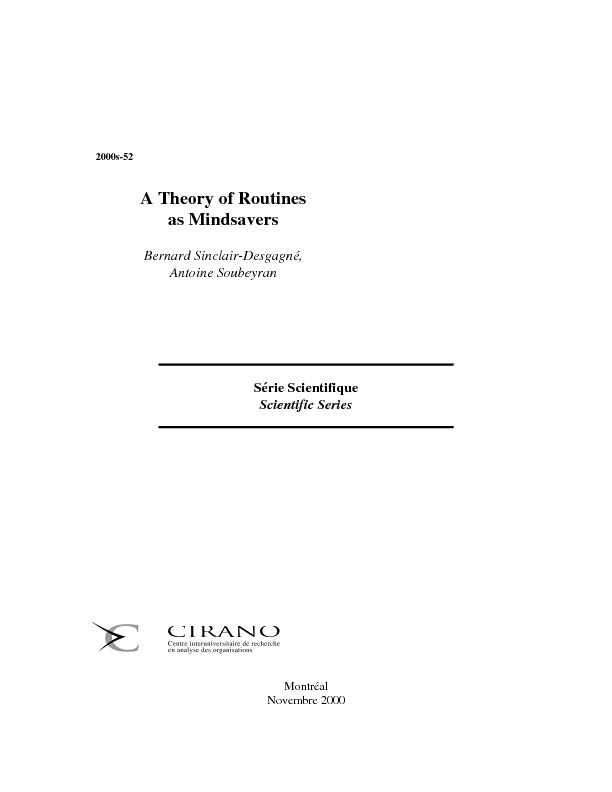A Theory of Routines as Mindsavers
A large number of our daily activities are routinized in the sense that they are done without explicit deliberation. We provide a first model that captures this phenomenon. In a dynamic setting routines arise endogenously from the necessity to economize on time and attention. Routines are shown to be ubiquitous, not only in trivial tasks that bear no direct payoff, but also in tasks where stakes are high and where deliberation and delivery are strictly complementary with respect to output. In jobs that comprise several tasks, the timing of routinization on one task is seen to depend on this task's relative contribution to output. In jobs that require different sorts of know-hows, routinization is linked to their total number. The relationship between routines and some well-known features of economic behavior, such as inertia and resistance to change, unreadiness towards increased rewards, and satisficing under time pressure is also briefly examined.
[ - ]




